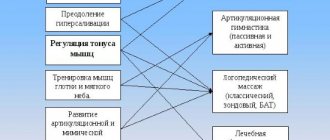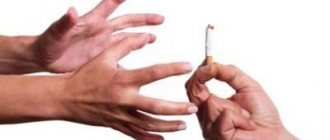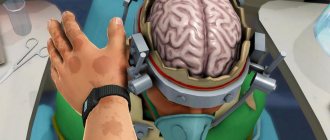Stages of development
Teenage Internet addiction has a number of root causes and can be expressed in various forms. Based on the time spent at the computer, three stages of addiction development are distinguished. At the first stage, a person studies the possibilities of the Internet network with further adjustment of virtual reality to himself, making up for the lack of attention and information in real life. The second stage captivates the teenager with its capabilities; he begins to spend more time in front of the monitor.
For an uncommunicative teenager, searching for friends on the World Wide Web becomes the only source of information and communication support. This is how addiction to the Internet is formed among teenagers, when a person completely refutes the real world and real communication. The third phase of addiction becomes visible to people around him when the teenager spends 24 hours a day online and reacts aggressively to any comment. The last stage is formative, as it becomes chronic.
When turning off the computer from the network, dependent teenagers feel irritated and are not interested in the problems of their environment. Over time, spending time at the computer weakens, but the person does not experience joy in life, becomes withdrawn and depressed. Interest revives when he finds an interesting topic or new interlocutors online.
For your information:
Excessive passion for the Internet and computer games gradually disrupts the physical and intellectual development of a teenager.
Teenage addiction
... A teenager is a child in his teens...
Adolescence, as a transitional stage from childhood to adulthood, is one of the most acute and long-term critical periods in the development of the body. Even with its normal course, changes in character and behavior are noticeable due to changes in physical development, appearance associated with the ongoing restructuring of the functions of organs and systems of the body with the predominant role of the endocrine, primarily genital organs. This is the age of an inquisitive mind, a greedy desire for knowledge, vigorous activity, enthusiasm, and initiative. desire for heroic deeds, danger, risk.
On the other hand, an analysis of the scientific literature shows that those most vulnerable to addiction
are
teenagers
.
This is mainly due to the characteristics of the teenage stage of child development, in this regard, peculiar “predisposition factors” for any addiction
can be both physiological changes occurring in the teenager’s body and social and personal ones, which are reflected in his actions.
Teen behavior
- external manifestations of the complex process of developing his character. Serious behavioral disorders are often associated with deviations in this process. But these deviations are not necessarily indicators of “abnormality” and pathology. Most often, this is due to the fact that in adolescence, some character traits have not yet been smoothed out by life experience and appear too noticeably.
This topic is the subject of study by representatives of various scientific fields: psychologists, educators, philosophers, sociologists. In modern foreign and domestic literature, a number of studies are devoted to the problem of the emergence of the development of various types of behavior in adolescence, the characteristics and directions of preventing addictive behavior in adolescents and young men.
However, despite the obvious need to study the characteristics of the emergence of addictive behavior in adolescence
, such studies are clearly not enough.
There are a sufficient number of diverse opinions regarding the essence of adolescence. The most common position is that physiological changes influence psychological and social maturity. Moreover, psychological and social maturity in their expression and form in a particular teenager may not coincide.
According to most psychologists, adolescence is characterized by ambivalence of feelings (lack of consistency, inconsistency of emotional relationships). It is the lack of stability in the emotional sphere that gives rise to feelings of discomfort, tension, personal inadequacy, and inability to solve the problems that have arisen. Under the influence of an unfavorable external environment, the degree of mental instability of an individual increases. In the structure of mental disorders, the leading place is occupied by signs of disharmonious development, emotional-volitional, and personality disorders “organically defective.” Treatment of teenage drug addiction
Consequently, a tendency is formed to search for strong emotional experiences that contribute to a subjective feeling of satisfaction and rarefaction of difficult life situations.
If we turn to dependency theory
“It is the instability of the emotional and volitional sphere that is the basic prerequisite for the emergence of any
teenage addiction
, thus, the teenager is in a certain way in a state of “psychological” readiness for addictive behavior.”
Communication becomes the leading activity in adolescence. The implementation of this activity, due to its objective necessity, becomes a fundamental moment for adolescents. The teenager is looking for opportunities to implement it in various directions available to him due to various circumstances. Communication with peers plays a primary role in this process, followed by relationships with parents, teachers, and other adults. in this case, the possibilities of direct and indirect communication can be used.
email is becoming increasingly popular these days.
, chatting and using mobile communication services.
In this sense, the computer allows the teenager to present himself in a favorable way or create the reality that will be most comfortable for the teenager, where there is the possibility of replaying a situation that the person was not happy with. Mobile communications
have become especially popular . This popularity is explained by several points: - many phones today combine the capabilities of a mini-computer; on the other hand, a cell phone, unlike a computer, a person always carries with him. For teenagers, mobile communication becomes not just communication, but all this takes on a certain form of a certain environment in which there are its own rules and laws.
It is worth noting that teenagers often use mobile dating services. Through these services, they try to find friends, conversation partners, loved ones based on height, eye color, knowledge of language, zodiac sign, etc. But since mobile communication is a short message service, therefore, the questionnaires are also short. therefore, the risk of experiencing disappointment after such an acquaintance is as great as possible. Treatment of teenage drug addiction
This problem is directly related to another feature of adolescence - the presence of a system of “double standards”, the inconsistency of internal and external assessments. Opposite traits of aspirations, tendencies, exist and fight with each other, determining the inconsistency of the character and behavior of a growing child. Anna Freud described this feature as follows: “Teenagers are exceptionally selfish, consider themselves the Center of the Universe and the only subject of worthy interest, and at the same time, in no subsequent period of their life are they capable of such devotion and self-sacrifice. They oscillate between blind obedience to their chosen leader and defiant rebellion against any and all authority. Sometimes their behavior towards other people is rude and unceremonious, although they themselves are incredibly vulnerable.” Yu.A. shares the same opinion. Aleksandrovski. He argues that most teenagers are characterized by contradictory psychological characteristics: Most often these are sensitivity, vulnerability, anxiety, combined with conflict, hot temper, and often with aggressiveness. In this situation, the teenager is on the border of two worlds - childhood and adulthood, but at the same time he has already outgrown his childhood self, and his adult self has not yet formed. Treatment of teenage drug addiction
This situation can be explained by the fact that, on the one hand, in terms of the level of the nature of mental development, adolescence is a typical era of childhood, on the other hand, we have before us a growing person, in whose complicated activities there is a clear focus on a new nature of social observations. The teenager enters into new forms of relationships and communication, tries to understand their nature, and self-determines. The personal development of adolescents is characterized by the presence of two differently directed tendencies: the desire for independence, conditioned by age-related developmental tasks, on the one hand, and the desire to maintain childhood dependence
, providing a feeling of safety, security and confidence, on the other.
However, it is fundamentally important for a teenager to feel successful among peers and recognized by adults. To fulfill these needs, the capabilities of some adolescents are very limited. And when communicating to dependencies
, in this regard, gives the teenager “bonus” opportunities: Recognition in a peer group of like-minded
dependent teenagers
, organization of leisure time with the opportunity for self-improvement and increasing social status.
Another specific feature of adolescence, outlined earlier, is the importance of communication with peers. It is especially important for a teenager to have a reference group, the values of which he accepts, the norms of behavior and evaluation of which he is guided by. however, often a teenager feels lonely next to his peers in a noisy company; if a teenager has this psychologically determined need remains unfulfilled, he will in any case look for a group in which he will be accepted and understood. During this period, the risk of becoming addicted
from anything teenagers.
This is explained, first of all, by the fact that it is quite difficult for a new person to get into an established group; the group presents a “set of requirements” to the newcomer, correlated with general group values, which often turn out to be difficult for the newcomer to accept. Therefore, some of the “applicants to the group” find themselves isolated. A number of psychologists, studying the individual psychological characteristics of such teenagers, indicate that these are either insecure, withdrawn children, or overly aggressive and arrogant children. The situation is further complicated by the fact that a teenager does not yet have developed models of behavior in his arsenal: previously, models were suggested, approved by parents or other significant adults, but now the authority of an adult has been lost, there is nowhere to take them from. This state of affairs, in turn, provokes a tendency to lower self-esteem, against the backdrop of emotional negativity. This factor is also one of the catalysts for the formation of dependent
forms of behavior.
Against this background, a more advantageous position is occupied by groups united by some kind of addiction object. It is worth joining such a group more simply - it is enough to share interests in the object of addiction
, supported by the majority of the group -
adolescent addicts.
Another significant area of adolescents’ relationships is relationships with adults, primarily with parents. Escape from parental care is the universal goal of adolescence.
In the context under consideration, it can be noted that one of the reasons for the aggravation of relationships with adults is the new formations of adolescence - feelings of adulthood. When they say that a child is growing up, they mean his becoming ready for life in the society of adults, and as an equal participant in this life. Of course, a teenager is still far from true adulthood, physically, psychologically, and socially. He can objectively join adult life, but he strives for it and claims equal rights with adults. However, the teenager still does not have enough funds to carry out this process at the proper, rational level. This is reflected in external manifestations - in the behavior of a teenager. Serious behavior is often associated with deviations in the process of socialization - beyond the abundance of unfinished models of optimal behavior in society.
Hobbies are strong, often changing each other, and are also characteristic of adolescence. The child chooses activities to his liking, thereby satisfying the need for independence, cognitive need, and the need for self-affirmation and identification. The modern sociocultural situation provides additional opportunities to fulfill these needs. means of achieving goals can be various forms of behavior. So, for example, in order to feel significant, treatment for teenage drug addiction does not require demonstrating physical strength on the football field, in the gym or fights in the yard. Now computer games that involve an unlimited number of players give the status of prizes, regalia and authority. Other examples include chatting and the use of mobile communication services. All this allows us to talk about the formation of a certain structure of teenage values.
Analyzing the facts above, we can state that in adolescence there are a sufficient number of conditions for the formation of dependent models
behavior
- teenage addiction
. Dependencies are especially pronounced during the period when a person is integrated into a system of various relationships that influence the process of formation of value orientations, a system of views on the future, interests and needs, as well as self-realization and the very affirmation of personality. This is, first of all, explained by the fact that I am going through a difficult period of physiological and psychological development of the individual, teenagers do not yet have established strategies in behavior in relation to adults and peers, experience difficulties in social adaptation, find solutions to their own problems in escaping reality in “ artificial world" of created emotions.
Causes of Internet addiction in teenagers
The reasons often depend on the psychological characteristics of the teenager and his inclination to take any action. For example, today you can find a large selection of online games on the Internet. These include gambling such as casinos and poker. Young children often cannot tear themselves away from shooting games and various farms. The causes of Internet addiction in children and adolescents develop at a high speed, taking into account age-related changes and the formation of the psyche.
Sometimes the main reason is the pedagogical neglect of children, the tendency to network communication, exchange pictures, photographs, and information. This condition affects people who feel more confident without seeing their interlocutor. Another reason is the need for information search. It consists of constantly finding any information that is of interest. This often leads to information overload.
What to do if your child is diagnosed with an addiction.
1. First of all, there is no need to panic. You are not the first and not the last in whose family a similar situation has arisen - there is a way out.
2. Prohibition and control (for example, “house arrest”) will not lead to a positive result. The fight against addiction begins with finding the causes of this addiction.
3. Treatment methods for adult addiction are not suitable for working with minors.
4. Contact a specialist. A good psychotherapist will help you understand the situation and plan the further course of your actions.
Signs of Internet addiction in teenagers
Signs in children and adolescents are as follows:
- a feeling of euphoria while online, and when taking a break from computer communication, the teenager experiences apathy towards the environment;
- a person stops going out;
- the teenager does not meet with friends, loses contact with all the people he knows in real life;
- constantly talks about Internet technologies, about sites he has visited;
- loss of routine, time;
- decreased physical activity;
- problems in the educational institution due to inattention and poor performance.
All of the above signs of Internet addiction are often refuted by teenagers, reacting violently to comments.
For your information:
The main reason for the development of children's addiction to the Internet is the lack of parental care, attention and love.
Psychological help online
The Internet and Computer are an integral part of our lives and, at the same time, a problem. Unfortunately, computer and Internet addiction is a disease that affects not only us, but also our children. Due to an excessive passion for computers, the child’s relationships with loved ones suffer, he distances himself, and his educational activities suffer. Contrary to the popular stereotype, it does not take years to develop a computer addiction (as is the case with alcoholism), but much less time. Thus, 25% of addicts surveyed by K. Young acquired addiction within six months after starting to work on the Internet, 58% during the second half of the year, and 17% soon after a year (Young, 1998, p. 27). According to Korean researchers, among high school students, possible Internet addiction is registered in 38% of respondents (Kim et al., 2005).
What are the dangers of computer addiction?
Research has revealed that among Internet addicts there is a higher level of affective disorders with a predominance of depression and obsessive-compulsive disorders, as well as masked depression within the framework of low-progressive schizophrenia (Dzholdygulov et al., 1999). Korean researchers found higher rates of depression and an increased risk of suicide among older schoolchildren with Internet addiction (Kim et al., 2005). How can you tell if your child is computer dependent? According to research by K. Young (Young, 1998), M. Orzack (Orzack, 1998), dangerous signals are:
Psychological symptoms:
• Child's constant anticipation of the next session • Increased time spent on the computer • Feeling good or euphoric while using the computer • Inability to stop • Increased amount of time spent on the computer • Neglect of family and friends • Feelings of emptiness, depression, irritation when not at the computer • Lying to friends or family members about their activities • Problems with work or study
Physical symptoms:
• Carpal tunnel syndrome (tunnel damage to the nerve trunks of the hand associated with prolonged muscle strain) • Dry eyes • Migraine-type headaches • Back pain • Irregular eating, skipping meals • Neglect of personal hygiene • Sleep disorders, changes in sleep patterns
Computer addiction therapy
Most experts recognize that all addictions have a common basis, and relief is possible with the consent of the addict himself to follow therapeutic instructions and recommendations. However, children are increasingly susceptible to computer addiction, and they often lack a certain psychological maturity - for example, the ability to self-control and self-government, developed reflection, as well as the ability and, most importantly, the desire to foresee the possible consequences (especially negative) of their actions. Therefore, in order to save children from computer addiction, the participation of their parents is necessary. Here are some actions that will help your children get rid of computer addiction: 1. Set a limit for the child’s time that can be spent on the Internet; 2. Agree with your child that from time to time he will not work at the computer for several days in a row; 3. Programmatically block access to some specific Internet resources; 4. Introduce penalties for non-compliance with these types of rules and restrictions and adhere to them; 5. Help your child come up with other entertainment that gives more pleasure than the pleasure he gets from working on the Computer; 6. Invite your child to turn to you for help every time when their own efforts to give up the computer are not enough; 7. A couple of auxiliary “levers” for influencing a child: if you are addicted to the Internet, you can reduce the speed of the Internet connection in your apartment. This will increase irritation from the Internet, and therefore you will want to turn off the computer; turn off pictures, this will make browsing the Internet boring;
And most importantly:
8. Increase your child’s self-esteem; 9. Encourage your child's social adaptation; 10. Encourage sports and other active activities outside the home; 11. Create a strong, trusting relationship with your child. This is your only real support in the fight against computer addiction; Nina Volontay
Consequences of Internet addiction in adolescents
Not every person becomes dependent on computer technology. It is worth noting several factors that provoke computer addiction, which are similar to alcohol or drug addiction: these are family problems and when the child does not have enough care and attention from his parents. He looks for support and distraction from everyday life in the virtual world.
The consequences of Internet addiction in children and adolescents are expressed in the following psychological manifestations:
- The teenager spends all his free time from studying in front of the monitor, refusing live communication and an active lifestyle;
- loss of interest in events happening around;
- appetite decreases;
- sleep phases are disrupted;
- emotional instability occurs;
- Irritability and anger appear when the computer is forced to turn off.
A teenager quickly develops an addictive state in which a person is not interested in anything other than visiting various types of sites on the Internet. Often people prone to mental imbalance, suspicious and emotionally weak individuals are subject to this condition. Teenagers are often depressed, have communication problems and have difficulty learning. People who spend most of their time at the computer are prone to obesity and diseases of the musculoskeletal system.
What health problems can a child have with computer addiction?
If parents began to notice that their children or child began to show signs of computer addiction, then they should know that this is a disease that affects not only the mental state of children, but also their physiological health.
Health problems may include the following:
- physiological;
- psychological.
Physiological such as:
- Loss of vision partially or completely. When a child is in front of a computer monitor or any other gadget, the eyes suffer greatly. The child begins to develop myopia, the eyes turn red, quickly get tired, and tearfulness appears. Straining your eyes for a long time can cause headaches.
- Violation of the correct formation of the spine and skeleton of the child. Which also has a detrimental effect on the development and growth of all internal organs.
Psychological:
- Inadequate understanding of the surrounding space.
- Chronic fatigue and lethargy appear.
- Aggression towards other people.
Having analyzed the aspects of the harmful influence of a computer on the health of children, the question arises: is it even possible for children to have contact with it and, if so, at what age.
Prevention of Internet addiction
There are a number of rules that will help protect your child from sitting at the computer. First of all, parents should spend more time with the child and take an interest in his hobbies. Parents who go about their own business provoke their child to seek support and communication on the Internet.
You should think about what your child can do besides study. To do this, you need to have a conversation with him, during which you ask him what he would like to do and what type of activity he prefers. Prevention of Internet addiction in adolescents should be used before the child becomes interested in computer technology and then spends time using it.
Computer addiction
“We’ve already tried everything,” the woman said with bitterness in her voice, and deep folds appeared around her lips. — They set passwords on the computer, turned off the Internet, and on the advice of the school psychologist, they simply took the computer away from home...
- And what?
“He literally threw his fists at me, my grandmother and my older sister. I even had to call my ex-husband for help. He came and took the computer, although he himself was against it and said that nothing would be solved that way. And indeed, it was not decided. Seryozha simply left home.
- Where?
- To my friend. There they continued to do the same thing - play on the computer.
- And your friend’s family?
- He has one mother. She works two shifts at a factory, often stays away at night and sleeps during the day. He doesn’t follow his son’s life at all. The boy has been smoking for a long time, drinking beer and all kinds of cocktails from cans...
- Artemka doesn’t drink anything like that, don’t drive him! - Fifteen-year-old Seryozha sharply objected to his mother. - He already quit, we just drank cola...
- Naturally, we returned the computer so that it could at least live at home, in front of our eyes. But he plays until four or five in the morning, then, naturally, he can’t get up for school, every morning there is a scandal, absenteeism, his academic performance collapsed, in the first half of the year he had three D’s and in several other subjects his grades were simply pulled down, but his head He has a good one, in elementary school he did without any C grades, he read books, did his homework himself, and I just checked homework... The school psychologist said: this is a disease, like drug addiction, it needs to be treated, we went to the doctors, the neurologist prescribed us pills, and we were also treated with hypnosis, and we went to an osteopath, to see a fortune teller in Vyritsa, and at the Brain Institute they passed some kind of current through his head...
- Current through the head? It’s crazy... Okay, the lobotomy was cancelled... - I muttered under my breath.
“And it’s all in vain, it’s already the third year, it’s getting worse and worse, at school they say: he won’t pass the exams for that year.” What should we do now?! Where else to run? He's only fifteen...
“I don’t know!” - I wanted to answer honestly, but it was impossible: the woman looked with hope, and Seryozha too - not without interest. He probably collected recommendations and appointments from specialists. After hypnosis and “current through the head”...
This is really an addiction - like tobacco, vodka, card games or roulette. But I don’t know how to work with dependencies. They didn't teach me this. Someone writes somewhere that he cures alcoholics and drug addicts - I don’t know anything about this, I don’t even know whether to believe it or not. So should I tell them directly? And where will they go then?
- Seryozha, do you understand that this thing smells like kerosene? - I ask. - Will they be kicked out of school and all that? Or do you have no problems, all the problems are with your mother and grandmother?
“Yes, in different ways,” the teenager answered after thinking. “Sometimes I kind of understand.” I think: I’ll play a little and sit down for homework. And then…
“I see,” I sighed.
Such mothers with such teenagers often come. Previously there were computer clubs, now everything is right at home. I have a routine set of advice and recommendations for them: they cannot be banned, they need to be replaced; Lomonosov's law - somewhere it will increase, somewhere it will decrease; clubs, sections, interesting activities, travel, meeting interesting people... I want to think that this sometimes helps...
“He used to play football, he was an excellent goalkeeper,” says Serezha’s mother, as if hearing my thoughts. — Their team won the regional championship in yard football. They still call him sometimes, but he...
- There is a way! - I decide. - Old but strong. One guy in a concentration camp came up with it.
- In a concentration camp?! - Mom tenses up. Now everything depends not so much on me, but on her intellectual level. I wonder how she is with humor?
- What should we do? - Seryozha asks cautiously, clearly expecting something like being doused with cold water, sleeping on nails and a ten-kilometer daily run.
- Seryoga, don’t be afraid, you’ll definitely like it! So... We cannot cancel the computer completely, you have already tried and failed. How long do you think your son can sit at the computer per day?
— The neurologist said: no more than two hours.
“And you, as I understand it, agree with him.” So. Seryoga, what do you think? How many would suit you?
- Well... four hours... or better yet, five!
- No, for our method all this is not serious. Eight hours a day - that’s right!
- What?! - Mom and Seryozha said in one voice.
- What did you hear! - I confirm rather rudely. - Eight hours.
- When will you study? Eat, sleep...
- It doesn't matter. Just think, studying! This is the method. The main thing is that in no case less than seven hours a day. But eight is better. You will follow. To me - once a week. And, by the way, come tomorrow without your son, we’ll discuss the details of the treatment.
Mom’s hands are shaking: maybe the psychologist has gone crazy? Seryozha's pupils cost two euros.
- Can you start “treating” right today?
- Of course, today, why put it off?!
* * *
A week later everything is fine. Seryozha is delighted with me and the method, there are black circles under his eyes. The very next day after the first visit, he jumped up, ran to the first lesson, blabbed everything at school, his classmates were jealous, the teachers were on edge, they called his mother at home (“Is this true? Are you sure you understood this specialist correctly?”). The mother I instructed is holding out for now. He keeps track of the time on the clock, brings Serezha food to the computer if his son goes to the toilet (once he loved to sit there with a book), shouts: just don’t stay too long, time is ticking, you still have four hours left...
In the second week, Seryozha stayed after school to chat with his classmates in the yard, then we went to McDonald’s, and that day it wasn’t eight hours. I was very unhappy.
- Why can’t I have fun with my friends?
- What fun, Seryozha, we are going through a serious process, we need to be more responsible. Try to make up for the missed hours this week.
- What about studying? Do homework? They'll kick me out of school!
- It doesn't matter. And how will you do your homework? You’ve already started everything anyway and won’t be able to catch up...
- My father said that he would pay for a tutor in mathematics and physics... And I can do the rest myself, I have a good memory.
- Well, I don’t know if we can fit a tutor into the schedule... If only he will come to your house so that you don’t waste time on the road...
Fourth week. Not a single absence from school. Studying with a tutor. Mother continues to insist: at least eight hours, otherwise we will let Ekaterina Vadimovna down, she spends so much time on us, worries about you. He makes an excuse from his mother: I actually have to do my homework! The class teacher recently shared with my mother: I’m afraid to even breathe, I handed in two essays, and yesterday in class I answered simply brilliantly...
Fifth week. Serezha’s sister read on his account on one of the social networks: “I feel like there is some kind of setup here, but I don’t understand what.” Search history using keywords: “psychologist, psychotherapy, concentration camp.” Found the author of the method! But it seems I haven’t understood anything yet. Six days out of seven I couldn’t play for eight hours: either lessons, then extra classes, and one day I was simply invited to play football from my old team, I got carried away, played until almost 12 at night, then collapsed and slept until the alarm went off for school. I swore a lot: I didn’t force anyone, you came to me yourself, if you’ve already started treatment, you need to be more responsible!
Sixth week. Mom came alone, without Seryozha.
- You know, he sent me. In the most decisive form. He said: you need it, you sit at this computer for eight hours, and I’m not a computer console for you, I have other things to do! But actually, he has a girlfriend... Imagine, she also plays football!.. But no matter how much I persuaded him to come and say it himself, he didn’t go. He said: you dragged me there, you and the psychologist explain yourself. Lie to her that I'm already cured.
“Yeah,” I said, and Seryozha’s mother and I laughed together. I also saw that the bitter folds around her lips had almost smoothed out.
Internet addiction treatment
You can reduce your craving for the Internet by observing the following points:
- In your free time, do physical exercise: walking, running, exercise equipment.
- Give yourself a few days to be offline. These could be short trips, visits to interesting places.
- Traveling and meeting new people can influence you to reconsider your life dependent on the World Wide Web.
- We need to pay more attention to studies and books. You can offer your child interesting literature or books according to his taste.
The Internet today is one of the main sources of useful information. To prevent a teenager from completely surrendering to virtual reality, abandoning studies and the meaning of life, parents will have to devote themselves more to the interests of the child, so that life and leisure become versatile.










